Social Awareness Teaching Resources
Help your students build social awareness skills with activities and printables, social skills worksheets and more SEL teaching resources created by teachers specifically for primary school students.
This collection is full of digital and printable activities created by the expert teachers of the Teach Starter team to help teachers as they work with students on being more socially aware, recognise social cues, understand social dynamics and treat the people around them with kindness and courtesy.
Each teaching resource in this social awareness teaching resource collection has undergone rigorous review by the Teach Starter team to ensure it's ready for the classroom ... and your students!
Curious about teaching social awareness and wondering how to build students' social skills? Read on for some tips from our expert teachers!
What Is Social Awareness? A Kid-Friendly Definition
Being socially aware is not something that comes naturally to every child, and explaining what social awareness means can be tough. Our teacher team has created this kid-friendly definition to help!
Social awareness is understanding how other people feel and what they need. When we are socially aware, we notice how others are doing, and we make an effort to be kind and helpful to them.
Social awareness also means paying attention to the rules and ways people behave in different situations.
Being socially aware means we are more sensitive to the feelings of people around us, and we can then use our social skills — such as the ability to be kind, to listen and to cooperate – to work with others. It means we can empathise with others, understand diverse perspectives and navigate social interactions effectively.
Social Awareness Examples for Kids
Now that you've explained the social awareness meaning, it helps to explore what it actually looks like when you put it into practice. Many of your students may have at least some skills already at hand — depending on the individual student and grade level.
A student in pre, for example, may show empathy by giving a crying friend a hug or sharing a toy, but they're typically not yet able to understand that people have different perspectives.
So how can your students show they're socially aware? Let's look at some kid-friendly social awareness examples!
- Taking turns on the playground or the tuckshop.
- Sharing crayons or gluesticks with classmates.
- Making eye contact with friends when they're speaking.
- Paying attention when a teacher is speaking and not interrupting.
- Collaborating with classmates to complete a group assignment.
- Using conflict resolution skills to address issues with a friend.
- Offering to help the PE teacher put away the netball equipment or helping the teacher librarian shelve the books that have been left out by other students.
What Is the Difference Between Self Awareness and Social Awareness?
We teach students both self awareness and social awareness in primary school, and the two relate to one another as important aspects of emotional intelligence.
But where social awareness is focused outward on the emotions, perspectives and needs of others, self awareness focuses inward on recognizing those concepts in oneself.
Social Awareness and Emotional Intelligence
Emotional intelligence is an umbrella term that involves a number of the core components of a social emotional learning curriculum — including self awareness, self management and relationship management, as well as social awareness.
So how does social awareness specifically tie back to emotional intelligence? Being emotionally intelligent involves not just recognising emotions in one's self but in others — the basic component of social awareness for our students.
Take social dynamics, for example. Understanding the social dynamics at play in a particular situation is a big part of being socially aware. Recognising group norms, cultural differences and power dynamics all help our students to avoid causing offense or discomfort in others. It's a great example of having the emotional intelligence required to navigate a situation!
What Are Social Skills?
Social skills is a pretty broad term, but it essentially refers to the ability of our students to interact effectively and appropriately with others in a variety of social situations.
The skills we focus on in pimary school include being able to communicate effectively, both verbally and non-verbally, as well as being able to understand and interpret the social cues and behaviours of others.
What Are Some Examples of Social Skills?
When we're talking about the social skills and relationship skills that kids develop under our watch, the list is long, but here are just a few examples of the social skills that are important for young students to work on:
- Communication Skills — Being able to express themselves clearly and effectively — both verbally and non-verbally — is an important social skill for kids to develop. At this age, students are capable of learning how to use appropriate verbal language, tone and body language — all part of relating to you as a teacher, to their classmates and to their family at home too.
- Active Listening — Learning how to listen attentively to others and understand their perspectives is another social skill that's age-appropriate and you'll likely cover extensively, regardless of the grade you're teaching. Primary students can learn how to appropriately ask questions and provide verbal and non-verbal feedback — both key to learning as a general life skill and in the classroom.
- Empathy — Teaching our students to understand and appreciate the feelings and perspectives of others is another important social skill and one students often need modelling to develop. This covers learning how to put themselves in other people's shoes and respond appropriately to their emotions.
- Problem-Solving and Conflict Resolution — Kids need to learn how to identify and resolve conflicts in healthy and effective ways as they grow up, and their relationships with classmates play a big role in building those skills. Both in class and on the playground, your students will be learning how to negotiate, compromise and find common ground with others.
- Self-Regulation — Our students should learn how to manage their emotions, thoughts and behaviour in different social situations. Learning how to control impulses, stay calm and think before acting will serve them long after graduating.
- Teamwork — Kids need to learn how to work effectively with others in a group setting, and the group activities you do in the classroom can help build this social skill. This basic skill covers learning how to share, take turns, and cooperate with others — something that will once again serve them far into their futures.
- Respect — Our students should learn to treat others respectfully, regardless of their differences. This is part of building a safe classroom environment. These lessons should focus on using appropriate language, avoiding stereotypes and appreciating diversity.
These various social skills are important for our students in the classroom, and they will extend far beyond as they grow up, serving them in a personal setting and eventually a professional one, too, as they forge new relationships.
How to Develop and Improve Social Skills for Kids
There is no magic spell when it comes to social skills! Kids' social skills improve through socialising with others and explicit instruction.
Here are a few of the ways that those skills can be developed (and improved!):
- Play — For kids, playing with peers is a major component of developing relationship skills as they interact with other kids and learn some of society's unwritten rules of socialisation.
- Modelling — We know that children learn by observing the behaviour of the people around them, and this applies to relationship skills as well. Kids pick up social cues and learn how to respond by watching how others — including their teachers — interact.
- Communication — Those speaking and listening skills we work on in the classroom are essential for social interaction. Children can learn to communicate their needs and feelings and understand and respond to the needs and feelings of others when you work on these important skills.
- Positive Reinforcement — Encouraging students to treat others with kindness and respect, then positively reinforcing these behaviours are both important for building confidence and self-esteem. In turn, children who feel good about themselves are more likely to interact socially and develop positive relationships with others.
- Group Activities — Group work and group projects provide our students with opportunities to work together and practise cooperation and collaboration.
- Free Plan
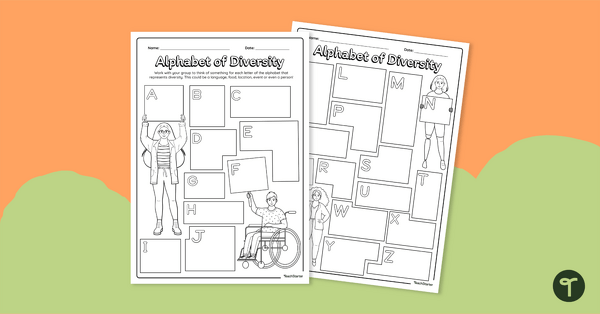
Alphabet of Diversity Worksheet
Celebrate diversity in your classroom with this alphabet of diversity worksheet.
- Plus Plan
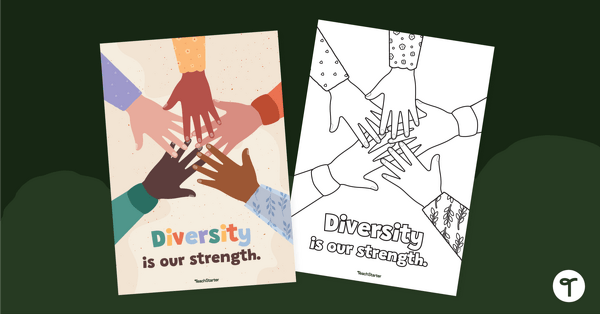
Diversity Is Our Strength Poster
Display this ''diversity is our strength' poster in your classroom as a reminder of unity and inclusion.
- Plus Plan
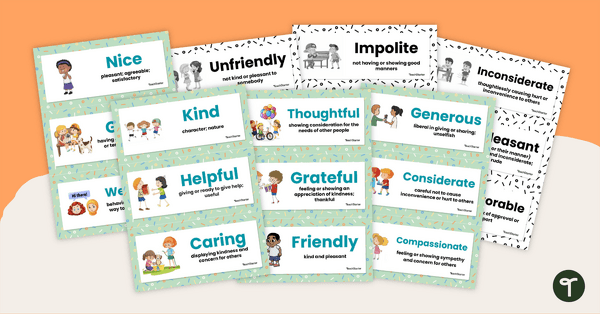
Kindness Vocabulary Word Wall
Learn vocabulary around the topic of kindness with this set of word wall cards.
- Plus Plan
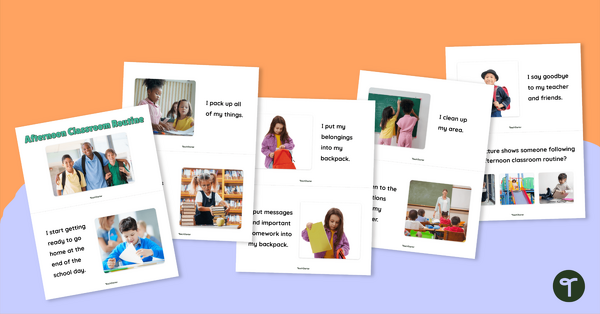
Afternoon Classroom Routine Mini-Book
Review expectations with your students regarding your afternoon routines with this printable mini-book.
- Plus Plan
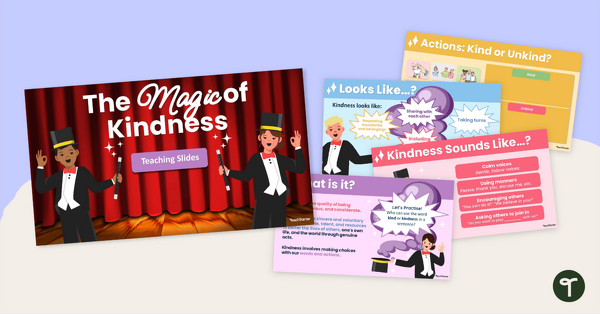
Kindness Teaching Slides—The Magic of Kindness
Guide students through understanding the importance of kindness with this set of teaching slides.
- Plus Plan
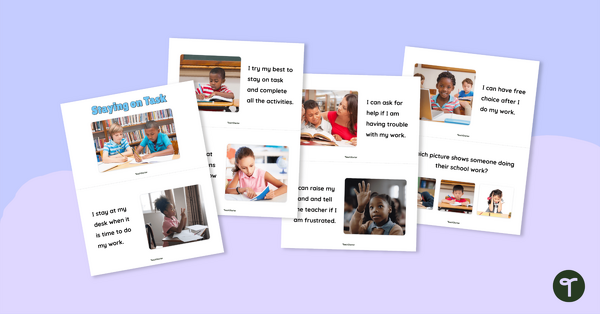
Staying on Task Mini-Book
Review different strategies for on-task behavior with this printable mini-book.
- Plus Plan
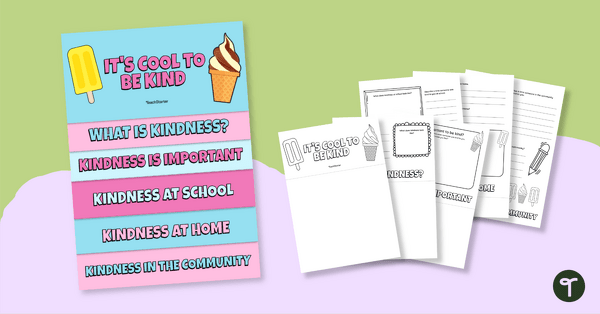
Kindness Flipbook Template
Learn about the different ways to be kind in a variety of places such as school, home and the community with this flipbook.
- Plus Plan
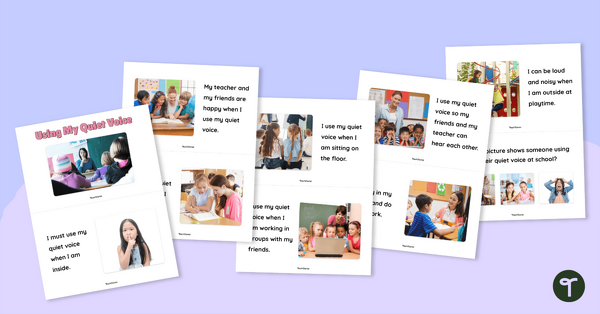
Using My Quiet Voice at School Mini-Book
Teach your students where they should use an inside voice and the benefits of doing so while at school with this printable mini-book.
- Plus Plan
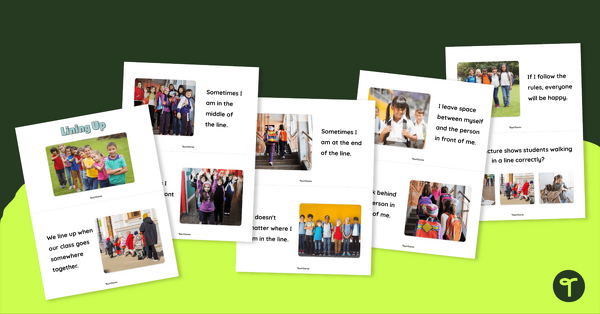
Lining Up Mini-Book
Teach your students the proper way to line up with this printable mini-book.
- Plus Plan
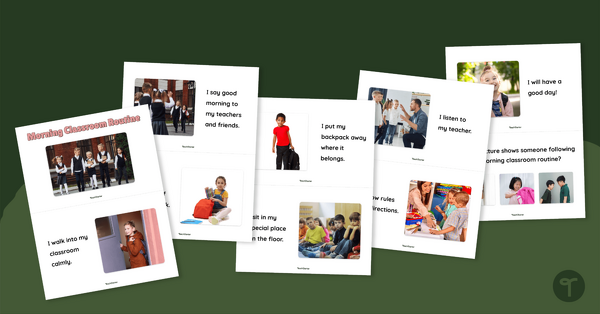
Morning Classroom Routine Mini-Book
Help your students develop a morning routine in the classroom by reading a printable mini-book.
- Plus Plan
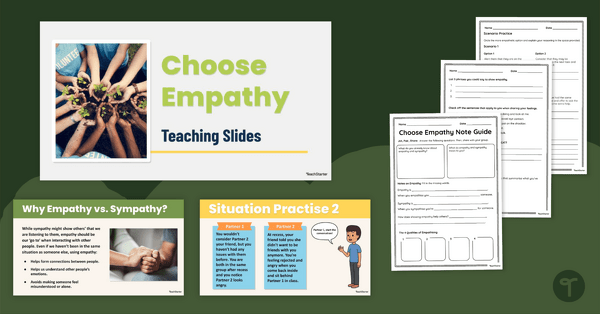
Choose Empathy Teaching Slides & Note Guide
Help your students understand the difference between empathy and sympathy while learning how to be empathetic with this set of teaching slides and note guide.
- Plus Plan
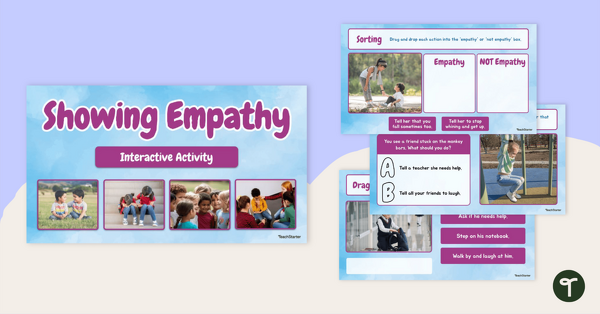
Showing Empathy Interactive Activity
Encourage your students to identify acts of empathy and determine the right thing to do in a given situation with an interactive activity designed for year 1 and 2 students.
- Plus Plan
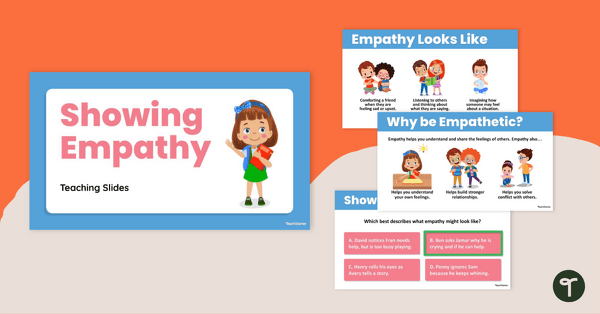
Showing Empathy Teaching Slides
Transform your classroom into a hub of empathy and kindness! Elevate your students’ social awareness with this set of SEL teaching slides.
- Plus Plan
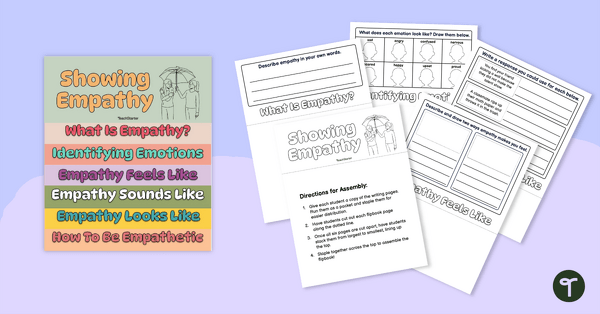
Showing Empathy Flipbook
Cultivate compassion in young minds! Download our printable empathy flipbook tailored for year 1 and 2 students.
- Plus Plan
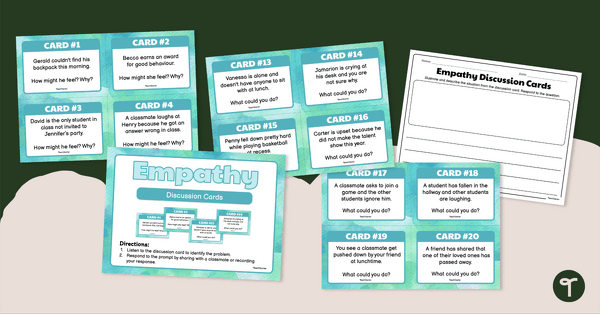
Empathy Discussion Cards
Promote kindness and understanding in your classroom! Download our set of empathy discussion cards to engage your students in meaningful conversations.
- Plus Plan

Printable Empathy Games
Spark empathy in young hearts! Download our set of printable empathy games specially crafted for year 1 and 2 students.
- Plus Plan
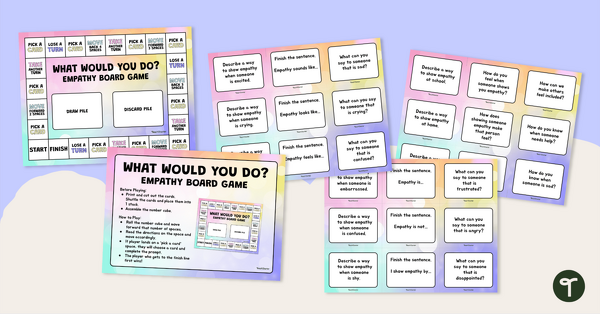
What Would You Do? Empathy Board Game
Challenge your students to think about the feelings of others and how to appropriately respond with the empathy board game.
- Plus Plan
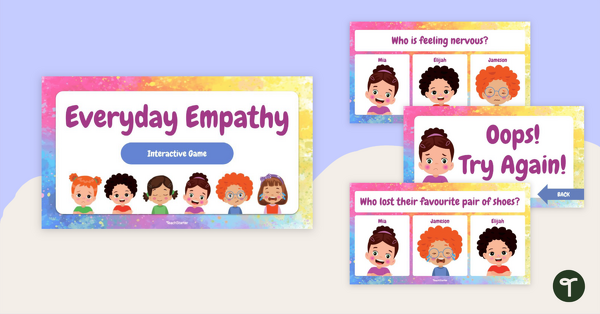
Everyday Empathy Interactive Game
Download this interactive game and help your students practise identifying emotions and understanding how others feel.
- Plus Plan
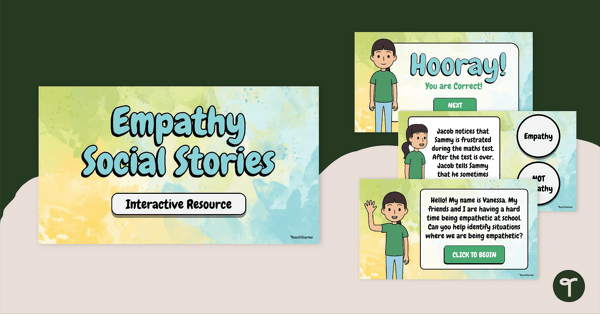
Empathy Social Stories Interactive Activity
Help your students determine empathetic behaviours with this interactive game designed for year 1 and 2 students.
- Plus Plan
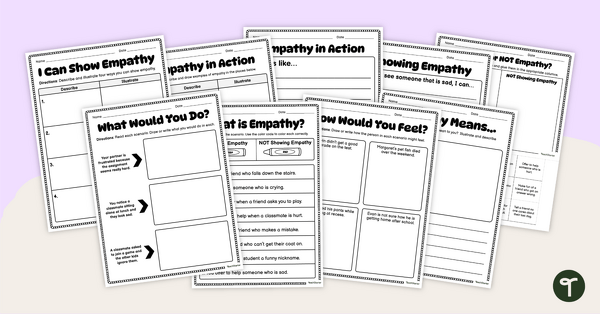
Empathy Worksheet Pack
Unlock a world of empathy with our SEL worksheet pack – download now and embark on a journey to nurture kindness and understanding with your students.
- Plus Plan
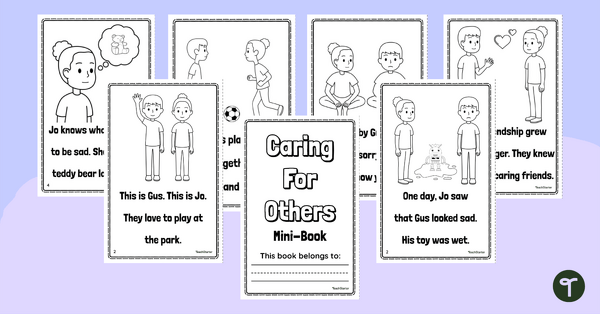
Caring for Others – Printable Empathy Book
Unlock the magic of empathy by giving your students a mini-book about how to connect, understand and make a difference through the simple act of caring.
- Plus Plan
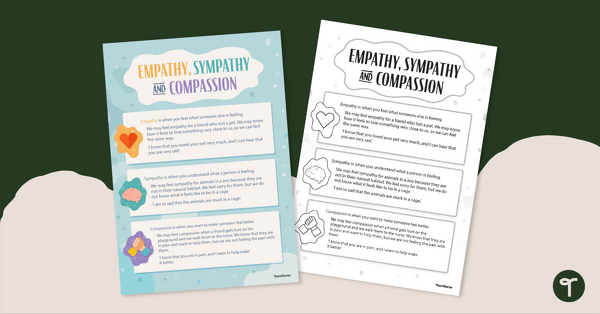
Empathy, Sympathy and Compassion Poster for the Classroom
Highlight the differences between empathy, sympathy and compassion with this printable poster.
- Plus Plan
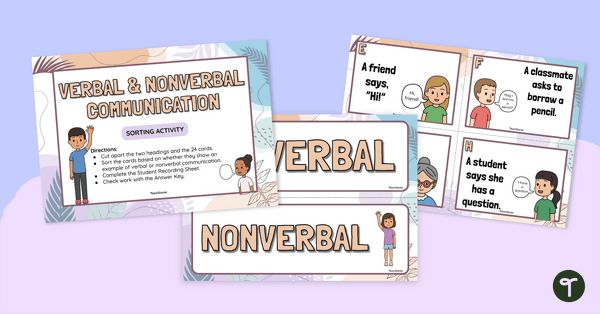
Verbal and Nonverbal Communication Sorting Activity
Use this sorting activity with your grade one and grade two students to practise differentiating between verbal and nonverbal communication methods.
- Plus Plan
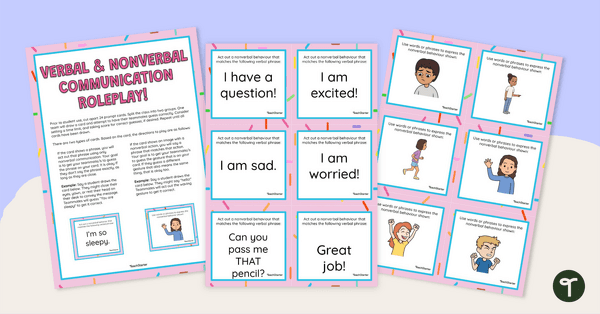
Verbal and Nonverbal Communication Roleplay Game
Use this active learning game to allow students to practise communication verbally and nonverbally, and interpret different verbal and nonverbal messages.
- Plus Plan
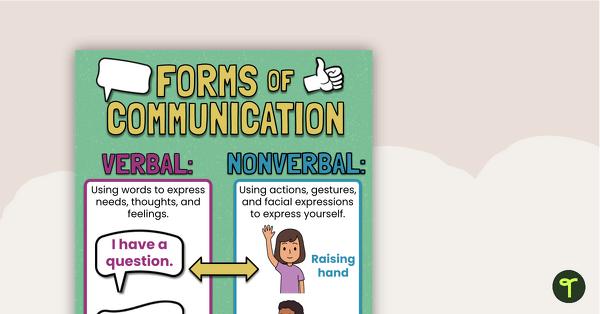
Verbal and Nonverbal Communication Poster
Teach your young students the key to communication by starting with the basics — the difference between verbal and nonverbal communication methods.
- Plus Plan
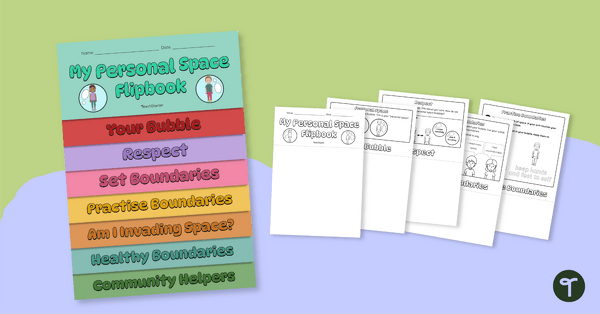
Personal Space Flipbook
Explore the concept of personal space and how it keeps us safe with this activity flipbook.
- Plus Plan
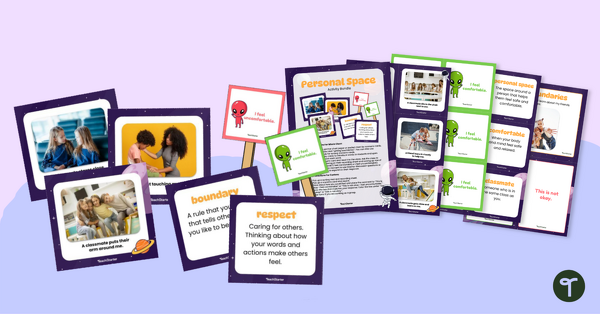
Personal Space and Setting Boundaries Activity Set
Learn about personal space and appropriate boundaries with this activity pack.
- Plus Plan
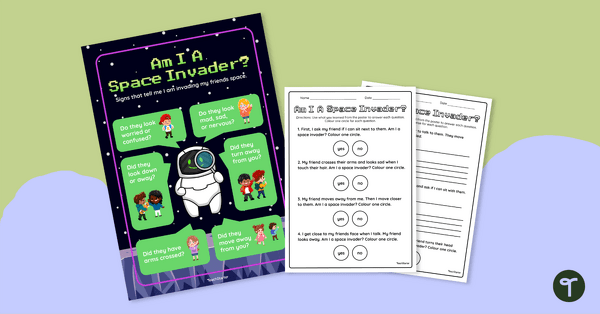
Am I A Space Invader? Poster and Worksheet Set
Learn about personal space with this space invader poster and worksheet set.
- Plus Plan
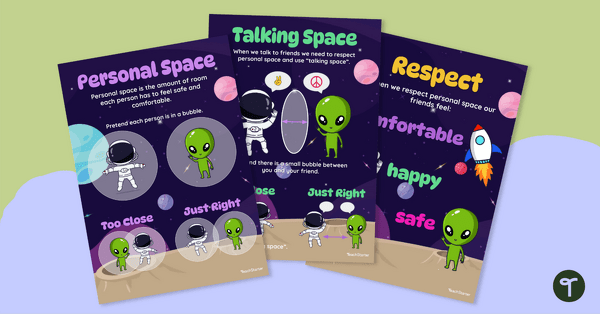
Personal Space Posters
Learn about personal space with these space-themed classroom posters.
- Plus Plan
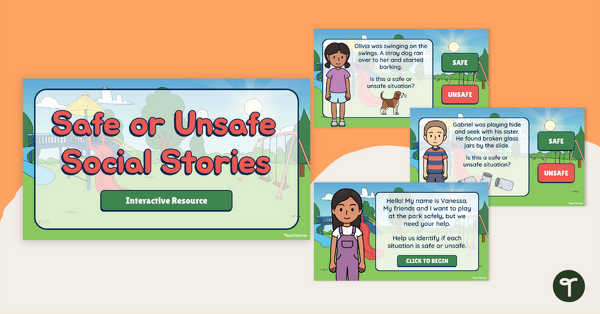
Safe or Unsafe Social Stories Interactive Activity
Discuss safe and unsafe scenarios with this interactive activity.
- Plus Plan
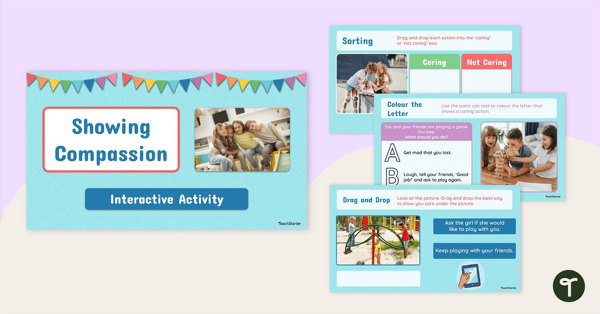
Showing Compassion – Interactive Activity
Help students understand the importance of caring for others and how to appropriately respond with this interactive activity.
- Plus Plan
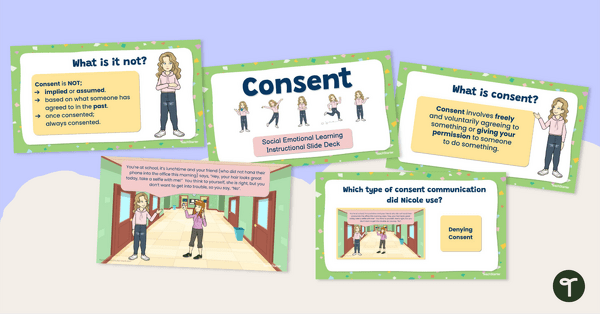
Understanding and Communicating Consent - Teaching Presentation
Introduce your upper years students to the concept of consent, the steps of seeking, giving, or denying consent, and how to communicate in familiar scenarios.
- Social Awareness Posters
- Social Awareness Templates
- Social Awareness Worksheets
- Social Awareness Games
- Social Awareness for Preschool/Kindergarten
- Social Awareness for Foundation Year
- Social Awareness for Year 1
- Social Awareness for Year 2
- Social Awareness for Year 3
- Social Awareness for Year 4
- Social Awareness for Year 5
- Social Awareness for Year 6